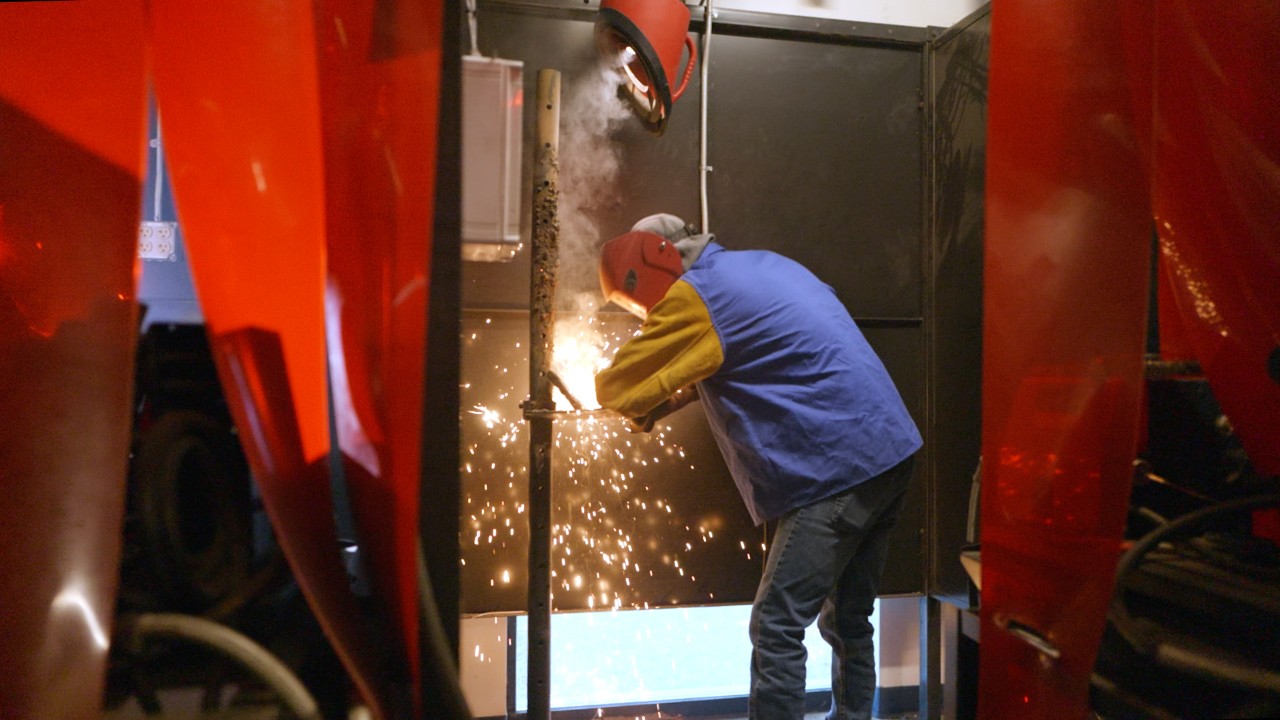Welders play an essential role in many industries. The energy, manufacturing, construction, aerospace, transportation, and automotive sectors all depend on skilled welders to join or fabricate the metal parts in their products and structures.
For those considering a career in welding, understanding the various specialties within the field is an important first step. One particularly impactful career path is oil rig welding, a profession that requires advanced technical skills and a thorough understanding of safety protocols.
If you are interested in pursuing a career as an oil rig welder, enrolling in a skilled trades school can equip you with the necessary skills and expertise to excel in this dynamic occupation.
What an Oil Rig Welder Does
Oil rig welders are instrumental in keeping oil rigs operational and safe. With specialized expertise in areas such as high-pressure, high-temperature (HPHT) welding, they ensure the structural integrity of pipelines, storage tanks, and other oil platform components. They work with metals such as carbon steel, cast iron, and stainless steel.
Oil rig welders may work on offshore or land-based rigs. Those who are based offshore must have strong swimming and diving skills, as they frequently work underwater in cold temperatures. They may live at their work sites or commute from nearby locations via helicopter. Welders on land-based rigs need to be able to lift heavy equipment, often in hot, desert-like conditions. Regardless of their work environment, oil rig welders often have opportunities to travel and find work across the world.
Job Duties of Oil Rig Welders
Some examples of an oil rig welder’s job duties include:
Performing the welding necessary to construct and repair rigs and related equipment
Bending and installing pipelines
Reinforcing pipeline collars and joints
Interpreting blueprints and other technical documents
Operating computerized welding equipment
Inspecting the quality of completed welding projects
Steps to Become an Oil Rig Welder
Becoming a welder on an oil rig involves meeting certain requirements related to education and experience. The steps in that process are outlined below.
1. Earn a High School Diploma
At a minimum, oil rig welders need to have a high school diploma or its equivalent, such as a General Educational Development (GED) certification.
2. Complete a Vocational Program in Welding
Completing a vocational program is a great way to develop welding skills. These programs combine classroom instruction and hands-on practice to teach essential techniques such as welding, brazing, soldering, and cutting. Students also build their knowledge and expertise in areas including:
Performing calculations necessary for welding
Understanding the symbols used in welding
Interpreting design documentation
Testing the quality of a weld
Examples of the types of welding skills that students can learn include the following:
Flux cored arc welding (FCAW)
Gas metal arc welding (GMAW), also known as metal inert gas welding (MIG)
Gas tungsten arc welding (GTAW), also known as tungsten inert gas welding (TIG)
Shielded metal arc welding (SMAW)
Completing a vocational program in welding prepares individuals for entry-level jobs such as industrial welder or welding apprentice. Some vocational programs also offer services that can assist students with employment services.
3. Gain Work Experience
New welders who want to work on an oil rig must first gain work experience through apprenticeships or entry-level positions. During this time, they continue learning on the job, staying current on industry innovations, working with a variety of materials, and ensuring compliance with safety protocols.
4. Obtain Certification, Licensure, and a TWIC Card
Earning certifications in welding demonstrates a welder’s credentials and dedication to the profession. Multiple organizations offer welding certifications. For example, the American Welding Society offers certifications such as the following:
Certified welder (CW)
Certified welding inspector (CWI)
Certified welding supervisor (CWS)
Certified resistance welding technician (CRWT)
Certified robotic arc welding (CRAW)
Oil rig welders also may be interested in the following industry-specific certifications offered by the American Petroleum Institute:
Corrosion and materials (API 571)
Piping inspector (API 570)
Welding inspection and metallurgy (API 577)
Some states require welders to obtain licenses before they can begin working, so welders should familiarize themselves with the licensing requirements where they will be employed.
Welders who work on offshore oil rigs also need to obtain a Transportation Worker Identification Credential (TWIC) card from the federal government. TWIC cards signify that a worker has passed the background check necessary to have access to maritime infrastructure.
Employment Outlook for Oil Rig Welders
An ongoing shortage of welders means the job outlook for the welding profession is bright. Around 42,600 job openings are expected to be available for welders, cutters, solderers, and brazers each year from 2022 through 2032, according to the U.S. Bureau of Labor Statistics. The agency forecasts this hiring trend as a result of retirements, aging infrastructure, and other factors.
Growth in the oil rig market also could translate into a good employment outlook for offshore oil rig welders. A 2023 article in the Oil & Gas Journal reported that the International Energy Agency (IEA) expects the offshore oil rig market to grow rapidly through 2025, as the industry continues to emerge from the COVID-19 pandemic and as new drilling and exploration expands.
Oil Rig Welding Is Important and Rewarding Work
Oil rig welders perform work that is critical to the energy industry. Keeping oil rigs operational and safe can be a fulfilling way for welders to use their skills and expertise. Anyone who is interested in acquiring welding skills can explore the Welding Technology training programs that Fortis offers and learn how training in welding can help them achieve their career goals.
Featuring small classes and hands-on instruction, the Fortis welding programs can set the stage for a career in welding. Get started on the road to your welding career today.
Recommended Readings
5 Types of Welding Jobs
The Four Primary Arc Welding Processes You’ll Learn About in Our Welding Program
How Do Welding Training Programs Work?


